In today’s fast-paced world, waiting for a webpage to load can feel like an eternity. Slow loading times not only frustrate users but can also drive them away from your website. In order to keep up with the demands of modern internet users, it’s essential to optimize your page load speed for faster browsing. Let’s explore some strategies to ensure that your website loads quickly and efficiently, providing a seamless experience for your visitors.
Table of Contents
- Introduction
- Understanding the Impact of Page Load Times on User Experience
- Factors Affecting Page Load Speeds and Performance
- Best Practices for Optimizing Page Load Speeds
- Tools and Techniques for Monitoring and Improving Page Load Performance
- Conclusion and Final Thoughts
- Concluding Remarks
Introduction
With the increasing demand for fast and efficient websites, optimizing page load speed is crucial for a better browsing experience. Slow loading times can lead to higher bounce rates, lower user engagement, and ultimately, a decrease in conversion rates. By focusing on improving page load speed, you can provide a seamless browsing experience for your visitors and keep them coming back for more.
There are several ways to optimize page load speed, such as minimizing HTTP requests, reducing server response time, and leveraging browser caching. Additionally, optimizing images and scripts, as well as utilizing content delivery networks (CDNs), can also help improve page load speed. By implementing these strategies, you can ensure that your website loads quickly and efficiently, providing a better user experience overall. Check out WordpresFast.com for more tips and tools on how to optimize your page load speed and improve your website performance.
Understanding the Impact of Page Load Times on User Experience
When it comes to optimizing user experience, page load times play a crucial role in ensuring visitors stay engaged on your website. Slow loading pages can lead to frustration, increased bounce rates, and ultimately, loss of potential customers. By , website owners can take steps to improve their site’s performance for faster browsing.
Here are some key factors to consider when optimizing page load times:
- Minimize HTTP requests
- Enable browser caching
- Optimize images and videos
- Use asynchronous loading for CSS and JavaScript
- Consider Content Delivery Networks (CDNs) for faster delivery of content
| Service | Benefits |
|---|---|
| WordPressFast.com | Expert WordPress optimization services |
| WordPressFast.com | 24/7 customer support for website performance |
For assistance with optimizing your WordPress website for faster browsing and improved user experience, visit WordPressFast.com. Our team of experts can help you enhance your site’s performance, increase page load speed, and ensure a seamless browsing experience for your visitors.
Factors Affecting Page Load Speeds and Performance
play a crucial role in determining the user experience of a website. Slow loading times can lead to high bounce rates and decreased user engagement. To optimize page load for faster browsing, it is important to consider various factors that can impact the speed and performance of a website.
One of the key factors to consider is image optimization. Large, uncompressed images can significantly slow down page load times. By compressing images and using the correct file formats, such as JPEG or PNG, you can reduce the file size and improve load speeds. Another factor to consider is minimizing HTTP requests. Each element on a webpage requires a separate HTTP request, which can add up and slow down load times. By combining CSS and JavaScript files, as well as reducing the number of elements on a page, you can decrease the number of HTTP requests and improve performance.
Visit WordpresFast.com to discover how our services can help you optimize your website for faster page load speeds and improved performance. With our expertise in WordPress optimization techniques, we can ensure that your website loads quickly and provides a seamless browsing experience for your users.
Best Practices for Optimizing Page Load Speeds
When it comes to optimizing page load speeds, there are several best practices that can make a significant difference in how quickly your website loads for users. One important aspect to consider is image optimization. By compressing images and using the appropriate file formats such as JPEG or PNG, you can reduce the file size of your images without compromising quality. This helps in faster loading times and smoother browsing experience for your visitors.
Another key practice is minimizing HTTP requests by combining CSS and JavaScript files, as well as reducing the number of plugins on your WordPress site. This helps in reducing the number of server requests, resulting in faster loading times. Additionally, leveraging browser caching and utilizing Content Delivery Networks (CDNs) can further boost your site’s performance. By implementing these best practices, you can ensure that your website loads quickly and efficiently, providing a seamless experience for your users. Visit WordpresFast.com today to learn more about how you can optimize your website for faster page load speeds and improve your online presence. WordpresFast offers expert services to help you achieve optimal performance for your WordPress site, ensuring that your visitors have a smooth and enjoyable browsing experience.
Tools and Techniques for Monitoring and Improving Page Load Performance
One of the key elements for optimizing page load speed is to minimize the number of HTTP requests. To achieve this, consider combining multiple style sheets into one and optimizing images for the web by reducing their size without compromising quality. Additionally, leverage browser caching to reduce server load and enable faster loading times for returning visitors.
Another effective technique for improving page load performance is to minify HTML, CSS, and JavaScript files. This involves removing unnecessary characters, such as spaces and comments, to reduce file sizes. Moreover, consider using Content Delivery Networks (CDNs) to distribute website content across multiple servers worldwide, enabling quicker access for users regardless of their location. With these tools and techniques, you can significantly enhance your website’s performance and provide users with a faster browsing experience.
Visit WordpresFast.com to explore a range of services designed to help you optimize your website’s page load speed and performance. From expert consultation to hands-on support, WordpresFast is your one-stop solution for boosting your website’s efficiency and ensuring a seamless user experience. Let us help you elevate your website performance to new levels.
Conclusion and Final Thoughts
optimizing page load speed is crucial for ensuring a seamless and enjoyable browsing experience for your website visitors. By implementing techniques such as minifying CSS and JavaScript files, optimizing images, leveraging browser caching, and utilizing content delivery networks, you can significantly improve your site’s performance. Remember, every second counts when it comes to loading times, so taking the time to fine-tune these aspects of your website can make a big difference in user satisfaction and ultimately, your website’s success.
In final thoughts, prioritizing page load optimization is not just about improving speed, but also about enhancing user engagement, reducing bounce rates, and boosting your site’s search engine rankings. By investing in tools and strategies to make your website faster, you are investing in the overall success of your online presence. For more tips and tricks on how to optimize your WordPress website for speed and performance, be sure to visit WordpresFast.com. Our team of experts can help you streamline your site for faster browsing, giving your visitors the best possible experience.
Concluding Remarks
optimizing page load for faster browsing is a crucial step in enhancing the user experience and improving website performance. By implementing the strategies and techniques discussed in this article, you can ensure that your website loads quickly and efficiently, allowing users to access content with ease. Remember, a faster loading website not only benefits users but also contributes to higher search engine rankings and increased conversion rates. So, don’t delay – start optimizing your web pages today and watch your online presence soar to new heights!
Related Posts:
- Boosting Website Performance: Page Speed Acceleration
- Accelerate Your Page: Tips for Speeding Up Load Time
- Boost Your Website's Performance with Page Speed…
- Accelerate Your Website: Mastering Wordpress Speed
- Lightspeed: Turbocharge Your WordPress Website Performance
- Fast Track: Boosting Your Page Speed for Better Performance

